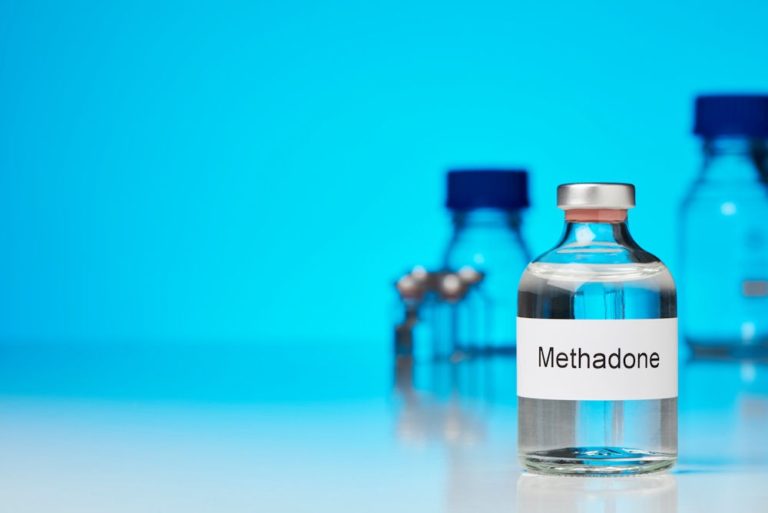Methadone is a drug that can help a person during recovery from certain addictions. It is also a highly addictive drug that can lead to addiction. Methadone detox and withdrawal can be extremely challenging since stopping can make a person very sick. However, there is help to safely and successfully detox.
Even when taken as prescribed, people can quickly become dependent on methadone. Because of its high risk of addiction, methadone is a Schedule II drug like morphine and hydrocodone.


What are the Uses of Methadone?
Methadone alone will not help in recovery. The medication must be used in combination with counseling and various behavioral therapies to provide a whole-person approach to recovery.
How Do People Become Addicted to Methadone?
The other most common way a person develops a methadone addiction is during treatment for another opioid addiction. Methadone is commonly used to treat extreme opioid addictions such as heroin addiction. However, methadone use in this scenario must be closely monitored. A person already struggling with an addiction can easily become dependent on methadone. Once there is dependence, an addiction begins.

What are the Signs of Methadone Addiction?
Methadone can turn happy, healthy people into depressed, dependent versions of themselves. Knowing the signs of methadone addiction can help someone you love regain control of their life. Some signs of methadone addiction include the following:
- Increased tolerance
- Experiencing withdrawal symptoms without methadone
- Prioritizing methadone over family, friends, and responsibilities
Another way to know if someone struggles with an addiction to methadone is by the side effects of the drug. People who abuse methadone typically experience the following side effects.
- Dizziness
- Fatigue
- Difficulty breathing
- Changes in sleep pattern
- Blurred vision
- Confusion
- Nausea or vomiting
- Muscle weakness
- Muscle cramps
- Pain
- Sedation
- Euphoria
- Slowed reaction time
- Decreased attention span
- Drowsiness
- Droopy eyelids
- Dry mouth
- Decreased body temperature
- Decreased blood pressure
What are the Symptoms of Methadone Withdrawal?
When a person goes through methadone withdrawal, they may experience the following symptoms:
- Depression
- Anxiety
- Insomnia
- Fever
- Chills
- Muscle pain
- Nausea
- Vomiting
- Stomach issues
- Sweating
- Rapid heartbeat
- Paranoia
- Hallucinations
- Irritability
- Cravings
Methadone withdrawal can lead to some serious side effects. The safest way to withdraw is through a medically supervised methadone detox center.
How Long Does Methadone Withdrawal Last?
Since it typically takes 24 hours to start feeling withdrawal symptoms, the first two days will be almost normal. You may start to experience the following:
- Fever
- Chills
- Rapid heart rate
- Muscle aches
Between days three and eight, methadone withdrawal symptoms hit their peak. These symptoms can be mild or extreme depending on the severity of the methadone addiction. Cravings are also strongest in this time period.
In addition to the symptoms of methadone withdrawal already being felt, you may begin experiencing:
- Flu-like symptoms
- Cramps
- Vomiting
- Body aches
- Anxiety
- Depression
- Irritability
- Insomnia
On day nine, many people notice some symptoms are starting to subside. But new symptoms may also begin. During this time, people may experience the following:
- Depression
- Irritability
- Physical discomfort
- Diarrhea
- Strong cravings
Many symptoms, like trouble sleeping, low energy levels, and intense cravings, can last for weeks or months after you stop using methadone. Additionally, people report having post-acute withdrawal symptoms (PAWS), which can last for months and even years.
Common post-acute withdrawal symptoms include:
- Depression
- Anxiety
- Irritability
- Poor concentration
- Trouble sleeping
- Inability to feel pleasure

What Is the Best Way to Go Through Methadone Detox?
If you have tried to detox from methadone, but it is too difficult, you may benefit from medically supervised methadone detox. It is the safest and most successful way to go through methadone withdrawal.
Methadone detox can happen at several different facilities, including hospitals, dedicated detox facilities, and addiction treatment centers with a detox program. Methadone detox at home is dangerous and can be life-threatening, along with increased relapse rates.
A significant benefit of medical detox is the around-the-clock medical care and supervision. This makes withdrawal and methadone detox more comfortable with less risk of severe symptoms. Once methadone detox is complete, addiction treatment can begin.
What is the Difference Between Inpatient and Outpatient Methadone Detox?
However, methadone withdrawal has the potential to be life-threatening. Methadone detox can have serious symptoms, such as intense cravings, which can cause a person to relapse and overdose. Being informed on both inpatient and outpatient methadone detox can help you make the best choice.
Inpatient methadone detox happens in a detox center or an addiction treatment center with a detox program. Inpatient methadone detox provides round-the-clock monitoring for dangerous withdrawal symptoms. You also receive medical care and medications to ease the withdrawal process.
Outpatient methadone detox means you do not have round-the-clock medical supervision and must drive to the detox center daily for medication and monitoring. Although inpatient detox doesn’t ensure you won’t relapse, it lets you step away from the triggers and stressors that lead to relapse. In outpatient methadone detox, you will still face the same daily challenges that led to using methadone in the first place.

Inpatient Methadone Detox Treatments to Kickstart Your Recovery
Another benefit of inpatient detox is access to psychotherapy. Methadone detox can be mentally and emotionally challenging. Without methadone to drown out your traumas and mental health problems, it forces you to face your issues. Therapists can help you start to process these emotions and encourage your recovery.
For some people, the most significant advantage of inpatient methadone detox is peer support. Addiction is the disease of isolation, so the only people around you are typically others struggling with active addiction. Having support from people who understand your challenges and want you to succeed can mean the difference between recovery and relapse.
Do You Need Methadone Detox in Kokomo, Indiana?
Whether your methadone addiction began because of a prescription, from treating another opioid addiction, or because of recreational use, it’s important to understand you are not alone.
Getting off methadone is scary and can be very uncomfortable. At First City Recovery Center, we provide a wide range of treatment programs focused on helping you get off methadone and get your life back.
If you or someone you love is struggling with methadone addiction and could benefit from methadone detox and treatment, we can help. Contact us today to find out how we can help you.

Do You Need Methadone Detox in Kokomo, Indiana?
Getting off methadone is scary and can be very uncomfortable. At First City Recovery Center, we provide a wide range of treatment programs focused on helping you get off methadone and get your life back.
If you or someone you love is struggling with methadone addiction and could benefit from methadone detox and treatment, we can help. Contact us today to find out how we can help you.

















